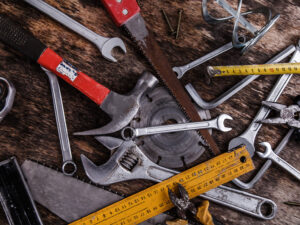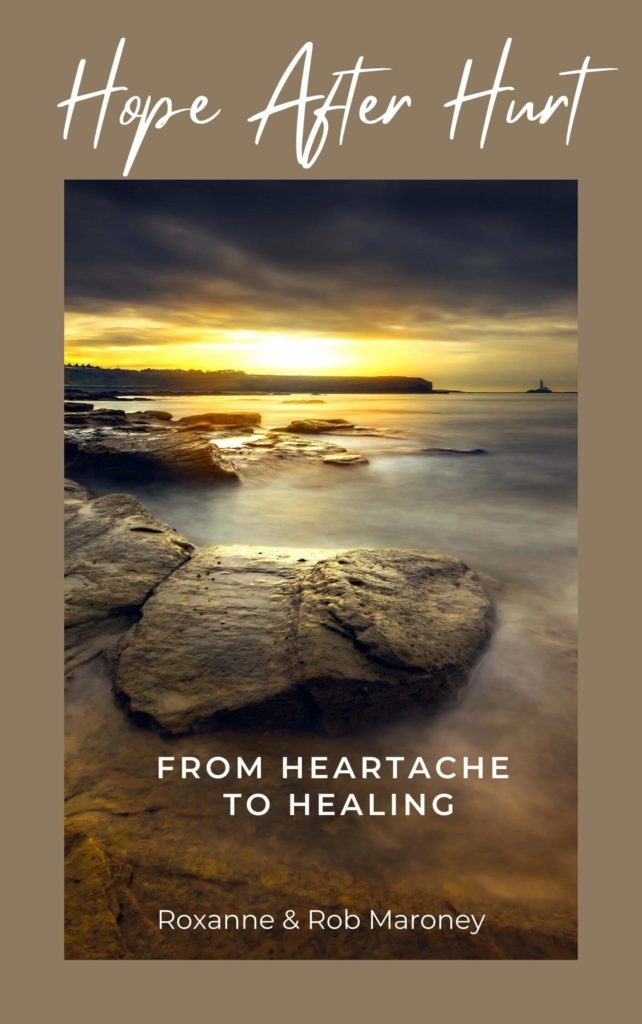
How Do We Repair?
WRITTEN BY:
Rob Maroney
August 14, 2024
I like tools. In fact, I have a lot of tools. It’s obvious what most are used for, but some of them have a more specific purpose, requiring a little more knowledge and experience. However, when my kids were growing up, a butter knife seemed to work very well as a screwdriver … or the end of a wrench could substitute for a hammer.
Some tools are easy to use, but others take skill and practice to do their job. A router can either create beautiful edge molding, or it can destroy a beautiful cabinet door in the final building stage. A plane can create smooth and perfectly fitted joints between two pieces of wood, or it can create deep gouges that ruin the project.
Whenever we are mastering a new skill and learning to use a new tool, whether it’s learning to use the latest iPhone, golfing, skiing, a new laptop, or specialized skills you learned in your chosen profession, unless we acquire the specific skills needed … we remain “unskilled.”
There’s an important tool every couple should have in their toolbox – it’s the tool of knowing how to “repair”. Remaining “unskilled” in this area will cost you dearly.
What do you feel when there is a rupture in a relationship? You feel the energy of isolation, anger, resentment … you feel disconnected. Why does this feeling of being “disconnected” bother us? Families, parenting, and relationships in the 21st century have a different look and feel compared to prior generations. Those in primitive cultures relied on everyone else living around them to survive, and even as late as the mid-twentieth century, living and interacting in a community was the norm. Front porches, bowling alleys, community gatherings, carnivals, town meetings, and even the family dinner table were the settings for meaningful conversation and connection.
But something has changed. Life today is not like the idyllic Canadian village in Hallmark movies. Divorce rates are up. The number of single-parent and fatherless homes has increased. And with a struggling economy, two incomes are no longer a luxury, but a necessity just for most families to stay afloat. As a result, casual daily “I’m there for you” conversations at home, community social events, and spontaneous visits to the next-door neighbor are things of the past. Our families are feeling the disconnection, and at the same time, more of our kids are suffering from depression, anxiety, drug abuse, attention deficit disorders, conduct disorders, and suicide, than ever before.
To try and find a link, researchers at Dartmouth University Medical School assembled a team of pediatric doctors and neuroscientists, and combined them with youth service professionals to examine the already existing research. They launched an effort to integrate the “hard science” of infant attachment and child and adolescent brain development with sociological evidence of how our culture shapes outcomes for children.
They reported, “scientific research shows that from the time of birth, a baby’s brain is already biologically formed to connect in relationships.” They concluded the human brain is literally hardwired for other people. Meeting this basic need is essential to health and to human flourishing.
Johns Hopkins Medical School also conducted a 30-year research project to determine if there was a common denominator … a single predictor that existed for mental illness, hypertension, malignant tumors, coronary heart disease, and suicide. After studying 1,377 people over 30 years, they concluded the single common denominator was not diet or exercise. Instead, they found the most significant predictor of these five calamities was a lack of closeness to the parents, especially the father.
Each of us responds to life’s stressful situations the way we do for a reason. We are hardwired and uniquely programmed as humans to long for deep, lasting, satisfying relationships, and to seek, search, and live for a destiny greater than ourselves.
These traits are part of what it means to be created in the image of God. But that’s still not the whole picture. Another set of factors enters in … understanding what shapes the way we think, feel, and act, which creates our basic perception of the world. This development starts in infancy and progresses throughout our lifetime. At the heart of these factors are two essential questions all of us instinctively ask: 1) Am I worthy of love?; and 2) Are others capable of loving me? Relational rupture without repair threatens both questions.
All relationships, but especially marriage, might be compared to a gem tumbler. When you put gemstones into the tumbler, they start bumping into each other. As the stones are tossed around, knocking off the rough edges, eventually the hidden gems are revealed. But there’s an another important element that must be added. To complete the process requires a special polishing compound. Without it, the stones just bounce off one another, cracking and shattering each other. The polishing compound is like God’s grace in a marriage. It’s the power of grace that energizes truth and love in relationships. It’s the power of compassion, forgiveness, trust, mercy, and hope … and that’s what enables us to repair, rebuild and restore.
So why does it distress us so much when our relationships “rupture” and we are “disconnected”? Because it’s going against the way we were originally and uniquely designed. Lack of relational repair leaves us in an unresolved, anxious, fearful, and isolated state. We were not designed to go through life alone, so no wonder it weighs us down so heavily when there is rupture without repair. That’s why mastering this relational tool is so important.
Roxanne and I talk more about how to navigate conflict, rupture, and repair in our book, “Hope After Hurt.” Having the right tools, and knowing how to use them, can be a game-changer in your relationship. Click on the button below to order a copy and learn more.

Check Out Roxanne and Rob Maroney's Book "Hope After Hurt"
Is your marriage a mess? Are you disconnected, struggling, or stuck even after counseling? Or are things between you and your mate too tidy or perfect but you’re wondering what happened to the adventure, the passion, and those feelings of your first dates?
If distrust and despair define your marriage and you just hurt too much to see any hope, read Hope after Hurt before you do anything else.




